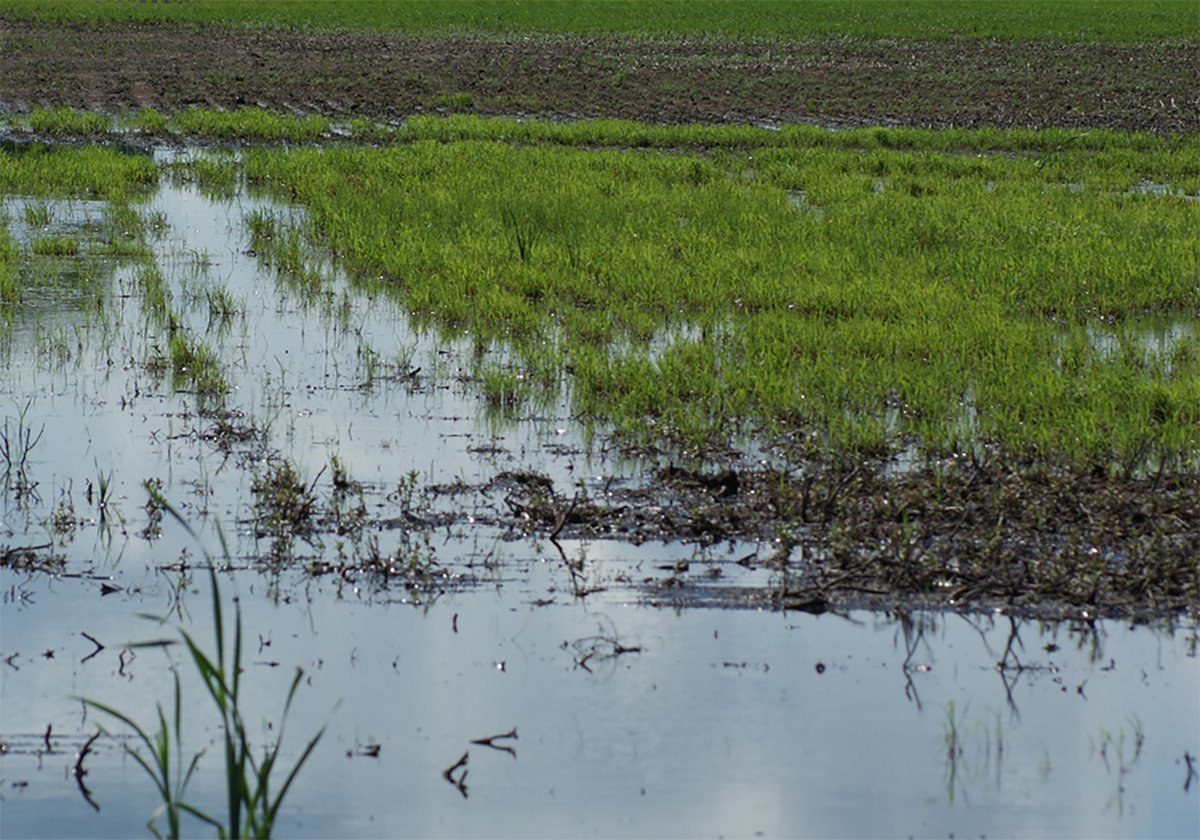Rural report; CWB censor; Word meanings; Likes hemp; Cash cow; But then again …; CWB pushes
Rural report
In response to Rev. Joyce Sasse’s column briefly discussing the Standing Senate Committee on Agriculture and Forestry, (Open Forum, Oct. 9) I would say the report discusses social policy, meaning yet another social change targeting rural Canada.
I read a published copy of the report and wondered how the witnesses were chosen to report to this committee? Did the taxpayers pay the costs for the witnesses to attend and why was there not a more public forum?
Read Also

Topsy-turvy precipitation this year challenges crop predictions
Rainfall can vary dramatically over a short distance. Precipitation maps can’t catch all the deviations, but they do provide a broad perspective.
There are numerous articulate and experienced producers whose voice was not heard by this committee chaired by Joyce Fairbairn. The committee chose to have 15 recommendations mentioned in this report. The final recommendation 15-1, “recommends that the proposed Department of Rural Affairs develop and implement a leadership training program for rural communities.”
Will the newly elected government follow through on this recommendation?
– Debera Edwards-Harrington,
Kelliher, Sask.
CWB censor
Freedom is a word that is used a lot regarding Canadian Wheat Board discussions. Usually it is in the context of marketing choice for farmers.
But it now appears there is an even more fundamental freedom at stake: freedom of the press.
Harry Siemens, well-known Manitoba farm journalist, is being shut out of CWB news conferences. At first, the CWB said Siemens wasn’t accredited. When he produced his press credentials, they switched their excuses and bluntly told Siemens that the CWB reserved the right to pick and choose which reporters it would allow at its news conferences.
The CWB has decided to censor the news that farmers receive regarding the CWB.
What this incident highlights is the degree to which the wheat board and its board of directors have lost their way. The CWB is supposed to represent the views and interests of all grain producers. That means it has a responsibility to deliver fair, clear and unbiased information to farmers.
That information is delivered by our respected and reliable farm media. The CWB does not have the right to hand pick who delivers the news presumably so CWB staff can have a hand in its delivery.
The CWB has become a self-interested entity, not interested in what is best for farmers. And farmers, by the way, are the ones who pay the salaries of the people working at the CWB.
To try to shut out media is unfair for farmers and, ultimately, it is counterproductive for the board itself. Times are changing in Canadian agriculture and the CWB will have to adapt or become irrelevant.
The board owes it to itself, as well as to farmers, to respect the voices of all media, not just the voices it likes.
This is a democracy. We don’t censor our news media.
– Kevin Archibald,
Killarney, Man.
Word meanings
The most important Canadian Wheat Board elections are right around the corner. Do not be fooled by the dual marketers again.
The CWB is very strong in the world and domestic market, bringing us prices that no single marketers will ever bring us. Marketing freedom might sound like a great option but here’s exactly what it means. It means the CWB will become only one player among the multinational grain companies, and any Tom, Dick or Harry who wants to try and make good money marketing grain and charging farmers quite handily for that service (can do so.)
If you choose to vote for these supporters of so-called marketing choice, be prepared to set your commodities up in a bidding war and watch the prices drop.
Shareholder grain companies are in business to make money for their shareholders, not for farmers. They will water down the strength of the CWB so that it doesn’t exist anymore.
The words “freedom” and “marketing choice” all sound like good words in a democratic society but all these words mean is the demise of one of the greatest marketing tools in the world. The U.S. and Europeans have been trying for years to destroy the CWB. Don’t you think we should protect that?
I’ve heard some farmers saying they want wheat and durum protected by the CWB but they want to open barley up. If the barley goes, don’t you think wheat and durum will be next?
Single desk is the only option to protect what we have. Once the CWB is gone, it’s gone forever, just like the Crow Rate. Agriculture would be a very viable business if we still had the Crow Rate. It changed our chances of making money farming. They enticed us with one big cheque and look what it did to us. The same will happen if you vote for a dual marketer candidate….
– Deb Smith,
Kindersley, Sask.
Likes hemp
Last week I was insulating my new home cottage, wishing there was a healthier product to put in my walls.
If Parkland Bio Products insulation was available, it would be the product I would have used.
I foresee this venture by the Parkland Industrial Hemp Growers Co-op to be highly successful and do hope their products will be available in B.C. If so, I will be seriously thinking of rebuilding.
– Glow Lemon,
Princeton, B.C.
Cash cow
This is the fifth consecutive week the Canadian Wheat Board has quoted Vancouver wheat prices as unavailable. Considering about 7,800 cars were unloaded during this period, how is this possible? They must be dumping it in the ocean.
With world prices more than $2 above present pool return outlooks, there is good reason not to publicize the discrepancy, but it comes down to just how little control farmers and directors have over the board. If we had any say in the matter, we would pay ourselves world prices for grain, right?
Isn’t it time to take the Canadian out of wheat board? Stephen Harper may be putting on a good act, but he is not about to turn a cash cow out to pasture.
– Louis K. Berg,
Sedalia, Alta.
But then again …
Now that the (federal) election is over, we can get rid of the Canadian Wheat Board monopoly. It is long overdue. Why can’t supporters of the monopoly let it go? Think about it. If the wheat board was any good, the United States would be hitting Canada with lawsuits over the board left, right and centre.
Pardon me, I guess they have done that. Still it is obvious that American farmers get a good price from the free market. Otherwise there would be payments through a farm aid bill.
I mispoke again. The U.S. does do that. …
The CWB guarantees payment to farmers. This is of more importance now with the recent calamity in the financial markets. Who knows what the purchasers of Canadian wheat and barley are going through? With the CWB as a sales agent, collecting is not the problem of the individual farmers. Payment to farmers is guaranteed by the federal government.
Looks like maybe me and the prime minister were wrong. There is no real good reason to end the wheat board monopoly.
Sure hope Steve goes through the same thought process I went through writing this letter.
– J. L. Jones,
Regina, Sask.
CWB pushes
Winnipeg Free Press story, “Canadians will push back if they try,” says MP Pat Martin as he defends the western Canadian institution, the Canadian Wheat Board.
Despite the fact that the CWB’s own internal polling indicates that over 60 percent of western farmers support a dual market and ask for change.
Mr. Martin and his NDP-Liberal cohorts insist that western farmers still remain captive under a war measures act, which removed the then dual market, which instituted the parliamentary monopoly known as the CWB, which ironically only operates in Western Canada. Only in Western Canada does the monopoly exist under parliamentary rule, as farmers in Quebec and Ontario enjoy the freedom of democratic choice.
Mr. Martin insists that western farmers remain denied of the freedom of choice fought for by their brothers in the Second World War. Canadians should be appalled that a third generation of western farmers remain under this war measures act governed by parliamentary control. Only in Western Canada, pity and a shame.
Mr. Martin and his cohorts should at least be honest. His push for the CWB has nothing to do with what the majority of western farmers want. Canadians should push for freedom for equal treatment for western farmers as their counterparts in the rest of Canada.
– Vicki Dutton,
Paynton, Sask.














